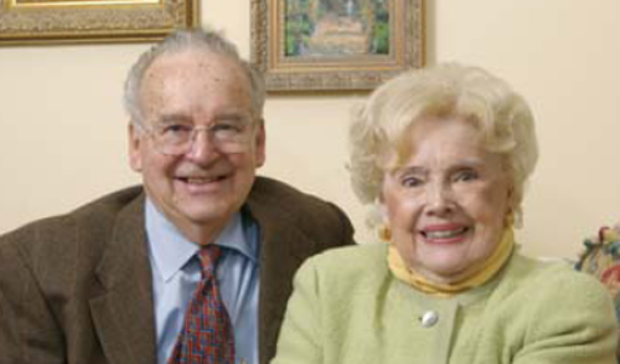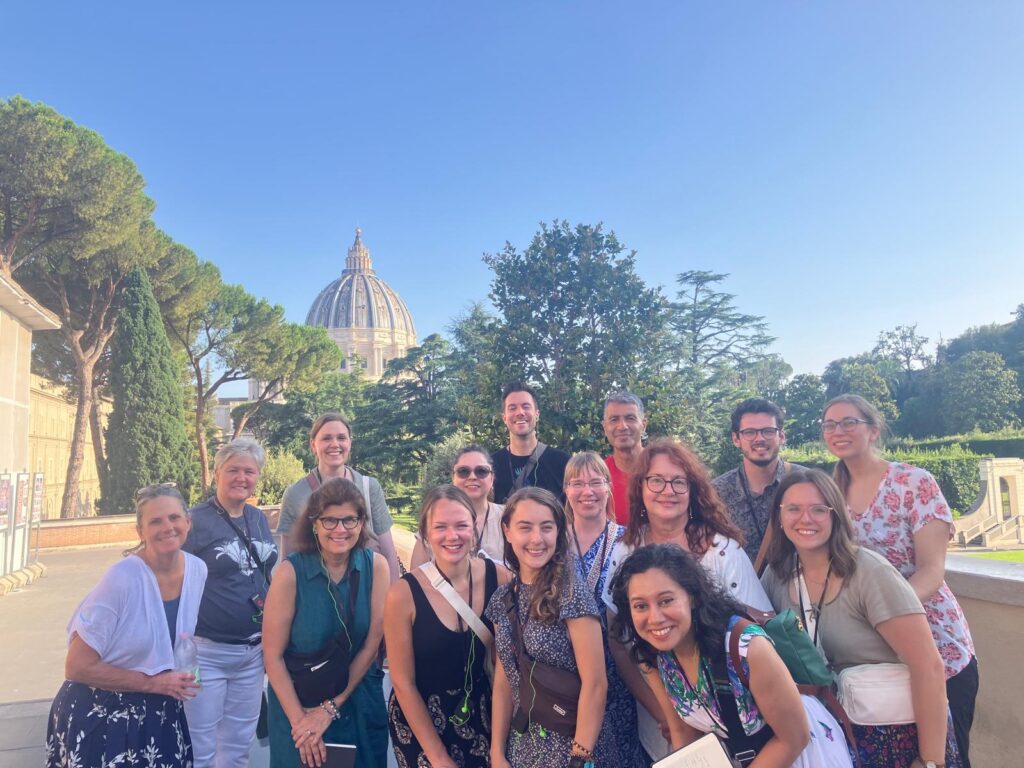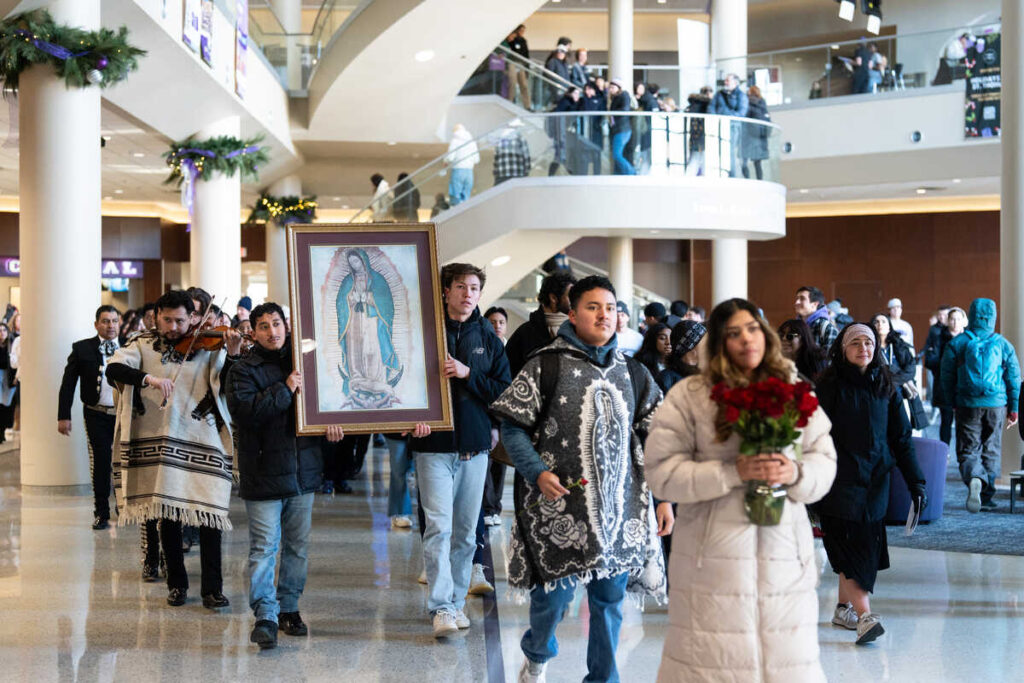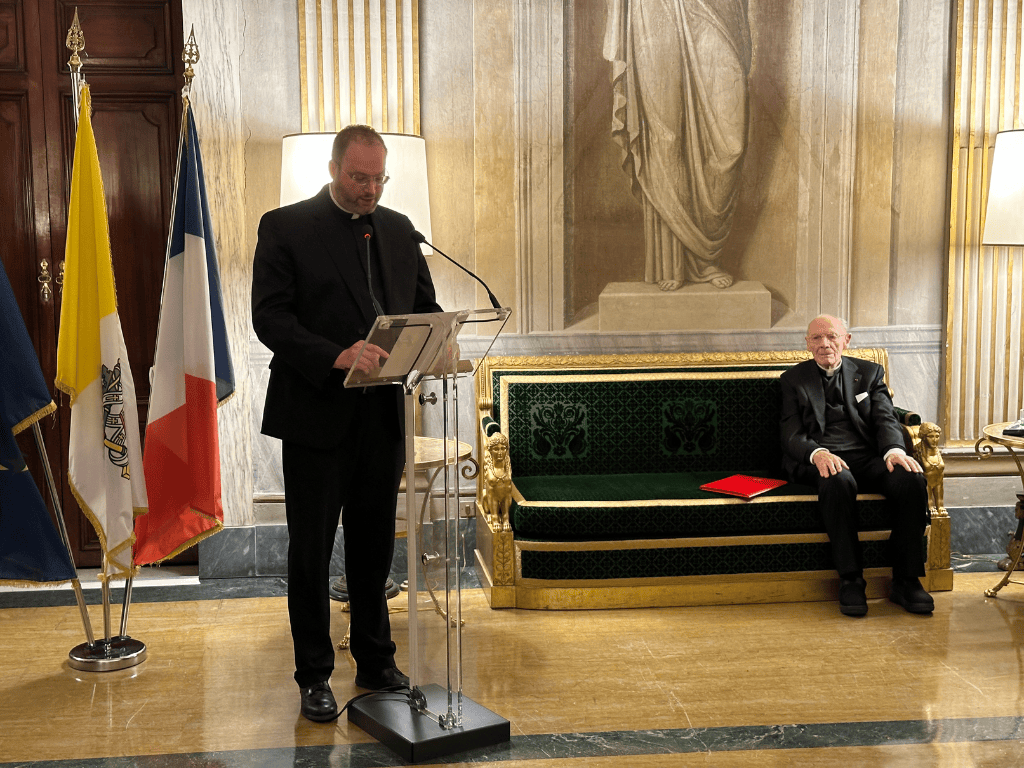Growing up in the 1960s and ’70s, I spent my childhood and youth in those rather tumultuous times for the Church. A simple illustration from the early 1970s comes to mind – I recall a heated debate among my older siblings and their spouses over questions regarding the use of Latin at Mass. That was my first inkling that the changes in the Church were not without their challenges. I soon became bored with a catechesis that consisted of scrapbooks and collages, but thankfully my sixth grade teacher sowed more substantial seed into my young heart and mind. That teacher, though, proved to be somewhat exceptional. During my adolescence I longed for an authentically Catholic doctrine and practice, yet I was unable to articulate this longing. I grew tired of skimmed milk but few at the time, it seemed, had the desire or conviction or courage to provide me with solid food.
When I entered the Society of Jesus in 1980, some of my fellows in the order, noting my love for the Church, would occasionally remark that I had been born too late – as if the Church’s perennial wisdom rooted in the truth revealed by Christ was somehow passé. But in recent years as I’ve taught seminarians, young religious and lay people from around the world at the Pontifical Gregorian University in Rome, I’ve begun to realize that, on the contrary, I may have been born too soon. My present experience as chaplain at the Bernardi Residence provides further confirmation of the great good that Our Lord effects in the hearts and minds of what many today call the John Paul II generation.
The Catholic Studies students who come to Rome demonstrate a profound love of God. They give authentic witness to the Gospel, especially among their peers from other programs who also reside on campus. This past fall semester, for example, one such student publicly expressed her thanks for the support she had received from such deeply spiritual companions; indeed, the Catholic Studies students inspire all whom they meet with their faith concretely lived – whether in adoration before the Blessed Sacrament, wholehearted participation at Mass, studying for their academic courses or working with the Missionaries of Charity among Rome’s homeless poor. I can honestly say that these students have greatly edified me at every turn.
The Bernardi Residence chapel is at the heart of our communal life. We gather as a community each Wednesday evening and Saturday morning for Eucharistic Adoration, the Divine Office and Mass. At other times during the week, students can be found keeping a daily holy hour before our Eucharistic Lord or joining with others for the recitation of the office or the rosary. Each semester, students also spend a weekend outside Rome on retreat, a time of silent prayer and reflection. Through these activities, a vibrant faith comes to animate the students’ intellectual pursuits.
Fides et ratio – faith and reason – define the Catholic approach to the truth both revealed by Christ Jesus and sown by God into the very fabric of the created order. The Catholic Studies students admirably demonstrate a fides quaerens intellectum – a faith seeking understanding. After our weekly Wednesday evening Mass, we gather as a community to explore and debate contemporary questions of faith and morals. Recent topics have ranged from a Catholic critique of The Da Vinci Code and the Harry Potter novels, to issues of moral theology, to the thought of Pope Benedict XVI, to a discussion of various sociopolitical themes led by invited guest Francis Rooney, the U.S. Ambassador to the Holy See. These discussions complement the students’ full slate of academic courses taken at Rome’s Angelicum University. Courses include subjects such as modern philosophy, the Church in European politics and ancient Christianity and art. Lessons in the language of Dante likewise help to round out their Italian experience while simultaneously preparing them for daily life in Rome.
As I have come to know the Bernardi Residence and the Catholic Studies program, I realize how it stands out uniquely among the other study abroad programs that various American universities sponsor in Rome. The Catholic faith thoroughly inspires the students in their academic endeavours pursued at the heart of the Church. The superb facilities, meticulously maintained, provide the students with a real home away from home. The students succeed in forming a supportive family-type environment where they sincerely care for each other and extend a warm welcome to the residence’s frequent guests. I consider myself blessed to be part of such a life-giving community.
Above all, the opportunity to pray, interact, and debate with the Catholic Studies students gives me great hope for the Church. Jesus has promised to remain with us until the end of time. He assures us that hell will never prevail over the Church, which He Himself founded upon Peter and his rock-solid confession of faith. This divine assurance reveals itself most convincingly in the lives of our students – in their conviction and determination to live without compromising the fullness of the faith that Christ has revealed. If my own youthful experiences of Catholicism were rather muddled during those post-conciliar years of experimentation, the present experience of these Catholic Studies students in Rome speaks eloquently of the clarity of vision that Pope John Paul II tirelessly entrusted to them. Serious students, devout Catholics, morally upright young men and women – these soon-tobe leaders in the Church and in society give great promise to the future of Catholicism.
About the Author - Father Joseph Carola, S. J., a Jesuit of the New Orleans Province, is the chaplain at the St. Thomas Bernardi Residence in Rome. A native of Houston, Texas, he received his doctorate in theology and patristic sciences in 2001 at the Patristic Institute Augustinianum in Rome, and is now a professor of patristic theology at the Pontificial Gregorian University.






